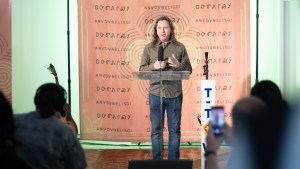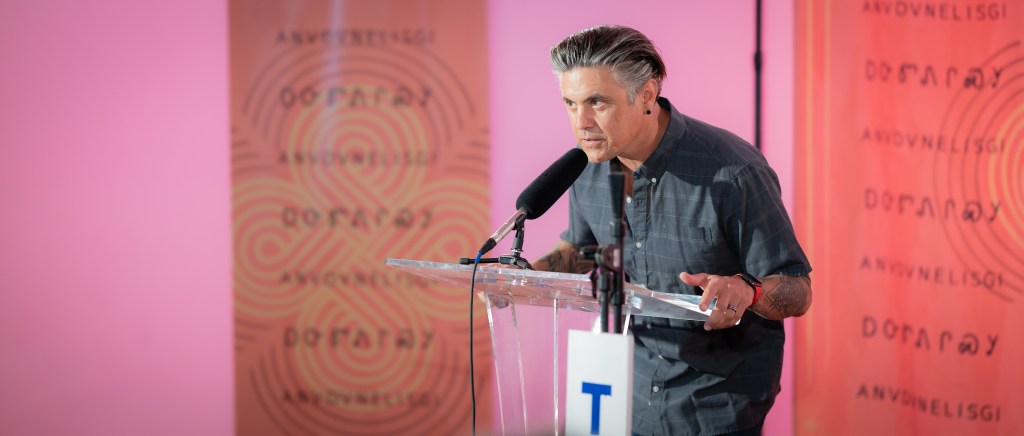
When a Tulsa filmmaker asked employee Brian Horton if his music nonprofit Horton Records could help produce an album of contemporary songs sung in the Cherokee language, Horton didn’t hesitate.
“I was just like, ‘Yes, let’s do it. When can we get started?’” he said.
The idea for the unique album came from Jeremy Charles, a Tulsa photographer and filmmaker who is Cherokee. He was inspired by native music in a video of the Māori people of New Zealand, shown to him by Howard Paden, executive director of the tribe’s Cherokee Language Program.
“By the end of that day, I found 15 Cherokee citizen artists and said, ‘Let’s make an album that does not exist in the Cherokee language.’”
Until now.
The album titled “Anvdvnelisgi” (pronounced Ah Nuh Duh Nay Lees Gi) debuted last month, representing diverse genres, including folk, country, pop, reggae, heavy metal and hip-hop.
Most of the artists wrote their songs in English but worked closely with Cherokee language experts to translate them into Cherokee and learn to sing them properly.

But Zebediah Nofire, a graduate of the Cherokee Language Master Apprentice Program, enjoyed the experience of writing his hip-hop lyrics in Cherokee.
“The rhyme schemes are different, and the rhythm of the language is different, so it was really challenging, but fun,” he said. “This project is a good way to show people that we can do different things outside of just hymns, which is about as far as our musical genres go in the Cherokee language.”
There are less than 2,000 living fluent Cherokee speakers, so it was important to Charles and Horton that the album showcase a language in danger of being lost forever.
“It’s created a new avenue, a new medium for people to absorb the language, to be exposed to it, to fall in love with it, to recognize that they could use the language in a modern setting. They could sing along with songs on the radio,” Charles said.
Horton, a financial analyst at Williams, formed his Tulsa nonprofit Horton Records to help musicians broaden their reach. He thinks the album is doing just that.
“When I listen to it, I just get lost in this beautiful language,” he said. “Musically there’s stuff on there that I don’t listen to all the time, but I hear it in a different way. There’s really just something for everyone. I hope it inspires people today and future generations to carry something forward with the language.”
